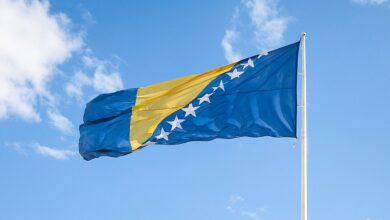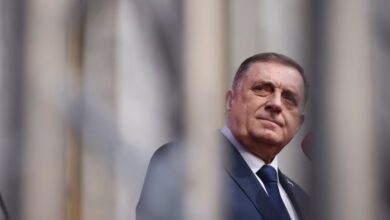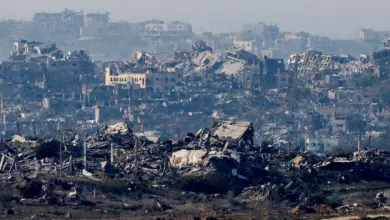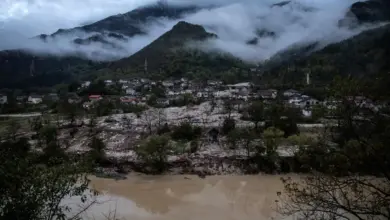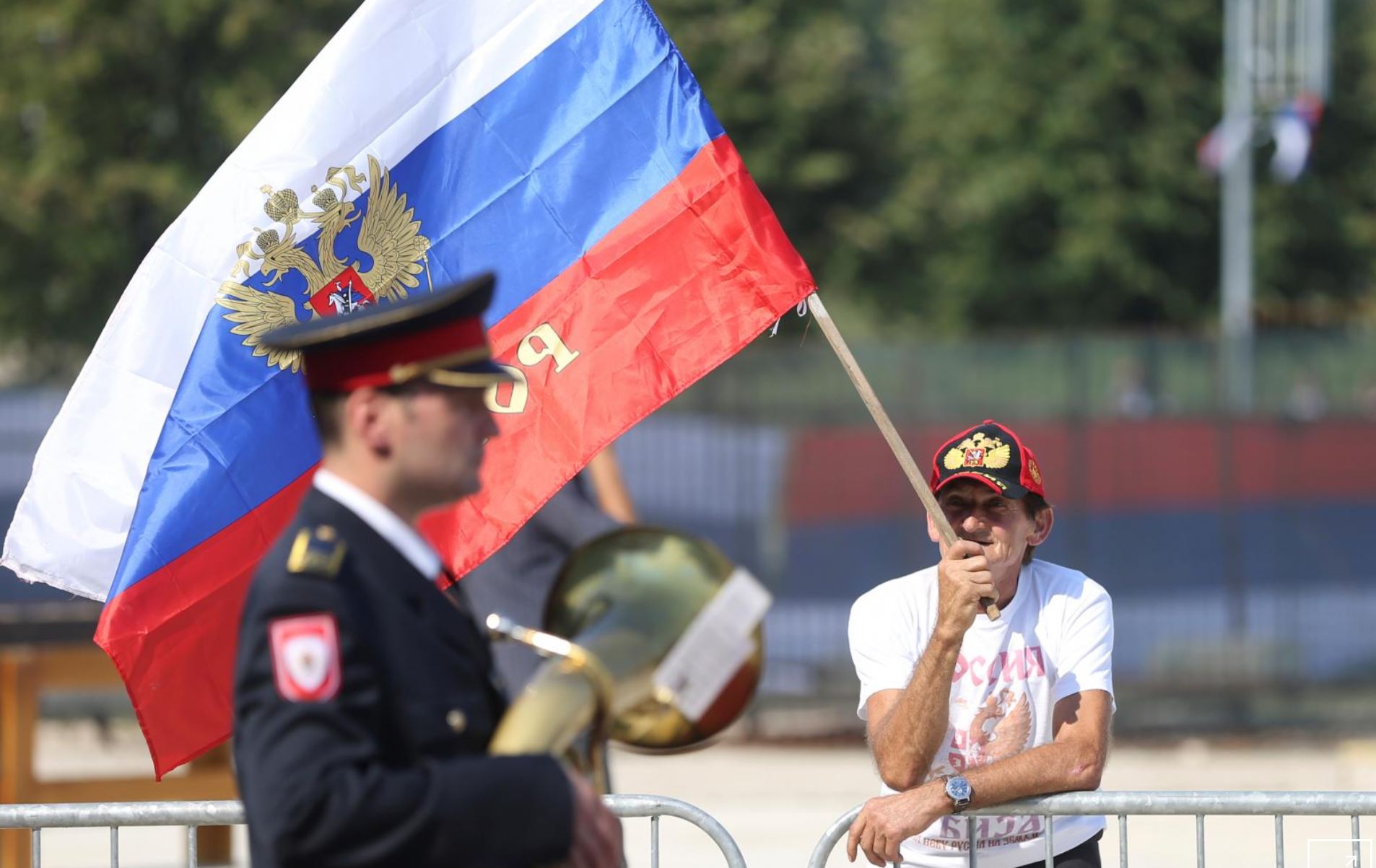
SARAJEVO (Reuters) – Russia supports the peace accords that ended Bosnia’s war in the 1990s and the country’s territorial integrity, Russian Foreign Minister Sergei Lavrov said on Friday amid a Bosnian Serb leader’s calls for secession of a Serb-run region from Bosnia.
Lavrov arrived in Bosnia two weeks before Bosnia’s national election, a visit described by local media as a show of support for Bosnian Serb leader Milorad Dodik, even though the Russian said he was not making a recommendation as to who to vote for.
Dodik, who is running for a Serb seat in Bosnia’s inter-ethnic presidency, is campaigning on a ticket of a wider autonomy of the Serb Republic that he currently presides over and its ultimate secession from Bosnia.
Dodik, who favors closer ties with Russia rather than the West, hopes that Russia will support his separatist plans at the time when a land swap has been discussed between Serbia and Kosovo, meaning that borders at the Balkans may change again but this time with international blessing.
However, Lavrov, who is due to meet Dodik later, gave no public support for the separatist move.
“Russia’s stance is there is no alternative to the Dayton peace agreement,” Lavrov said at a news conference in Sarajevo held with his Bosnian counterpart Igor Crnadak, referring to the US.-brokered peace deal that ended Bosnia’s 1992-95 war.
“We support Bosnia’s sovereignty, territorial integrity and the authorities granted by the constitution to its two entities and three constituent peoples,” he said.
Lavrov dismissed allegations that Russia favored and supported particular politicians ahead of the Oct. 7 vote.
“We never make recommendations to anyone for who to vote when it comes to foreign countries, and (we) will always respect the choice of Bosnian citizens and work with those who they entrust,” he said.
But he also said that other world powers should not interfere in the Balkans and create new confrontations in the volatile region.
Lavrov will also go to Banja Luka, the Serb Republic’s de facto capital, where he will talk to the region’s leaders and visit the site of a future Serbian-Russian Orthodox cultural center, joined by Serbia’s Foreign Minister Ivica Dacic.
Reporting by Daria Sito-Sucic; Editing by Alison Williams.

